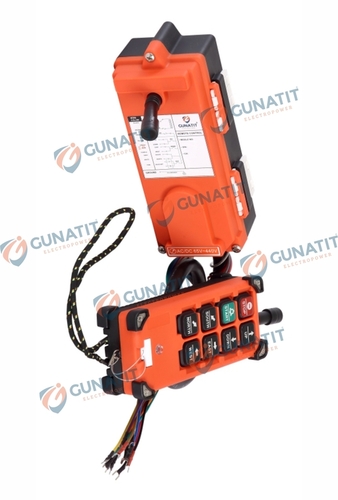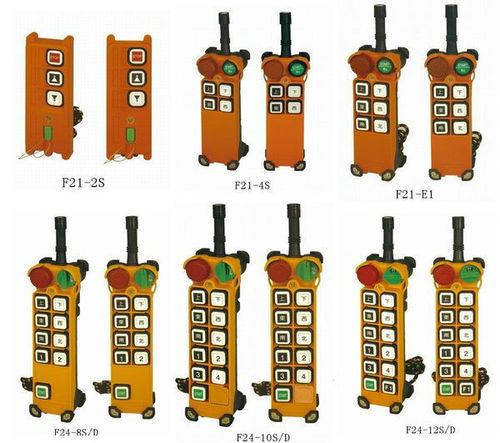
Overhead Crane Remote Control System
15000 INR
Product Details:
- Type EOT CRANE
- Material Thermoplastic
- Control Distance 100 Meter (m)
- Working Frequency 50 Hertz (HZ)
- Input Power 110 Volt (V)
- Frequency (MHz) 50 Hertz (HZ)
- Color YELLOW ORANGE
- Click to view more
X
Overhead Crane Remote Control System Price And Quantity
- 1 Piece
- 15000 INR
Overhead Crane Remote Control System Product Specifications
- 50 Hertz (HZ)
- 110 Volt (V)
- EOT CRANE
- 50 Hertz (HZ)
- Thermoplastic
- YELLOW ORANGE
- 1 YEAR
- 100 Meter (m)
Overhead Crane Remote Control System Trade Information
- mundra , india
- Cash on Delivery (COD) Cheque
- 10 Piece Per Month
- 5-8 Days
- Yes
- Sample costs shipping and taxes has to be paid by the buyer
- CARTOON BOX PACKING
- All India
- AN ISO 9001 : 2008 CERTIFIED COMPANY
Product Description
An overhead crane remote control system, also known as a radio remote control system or wireless crane control system, is a technology that allows operators to control the movements of an overhead crane from a distance using a portable remote control device. This system enhances the flexibility, safety, and efficiency of crane operations in various industries.
Here are key components and features commonly associated with overhead crane remote control systems:
1. Remote Control Unit:
- The handheld remote control device is the interface through which the operator communicates with the crane.
- It typically includes joysticks, buttons, and possibly a display screen for monitoring crane parameters.
- The unit may have an ergonomic design to ensure comfortable and intuitive operation.
2. Radio Transmitter and Receiver:
- The remote control unit communicates wirelessly with a radio transmitter that is part of the crane's control system.
- The crane itself is equipped with a radio receiver that receives signals from the remote control unit.
3. Safety Features:
- Emergency stop buttons on the remote control and the crane.
- Fail-safe mechanisms to prevent accidental or unauthorized operation.
- Signal encryption to prevent interference from other wireless devices.
4. Battery and Power Management:
- The remote control unit is powered by rechargeable batteries, and the system typically includes a charging station.
- Battery life and low battery indicators are important features to ensure uninterrupted operation.
5. Range and Signal Strength:
- The effective range of communication between the remote control and the crane is a critical factor.
- Signal strength is important to ensure reliable and responsive control, especially in industrial environments with potential signal interference.
6. Feedback and Monitoring:
- Some systems provide feedback to the operator, such as load weight, crane position, and other relevant information.
- Monitoring capabilities help operators make informed decisions and contribute to safer operations.
7. Compatibility and Integration:
- The remote control system should be compatible with the specific make and model of the overhead crane.
- Integration with other crane control systems and automation features may be necessary for advanced functionalities.
8. Durability and Environmental Considerations:
- The remote control unit should be durable, resistant to impacts, and capable of withstanding harsh environmental conditions.
- It may be rated for protection against dust, water, and other elements.
Tell us about your requirement

Price:
Quantity
Select Unit
- 50
- 100
- 200
- 250
- 500
- 1000+
Additional detail
Mobile number
Email
 08045801632
08045801632
 English
English Spanish
Spanish French
French German
German Italian
Italian Chinese (Simplified)
Chinese (Simplified) Japanese
Japanese Korean
Korean Arabic
Arabic Portuguese
Portuguese




 Send Inquiry
Send Inquiry Send SMS
Send SMS
